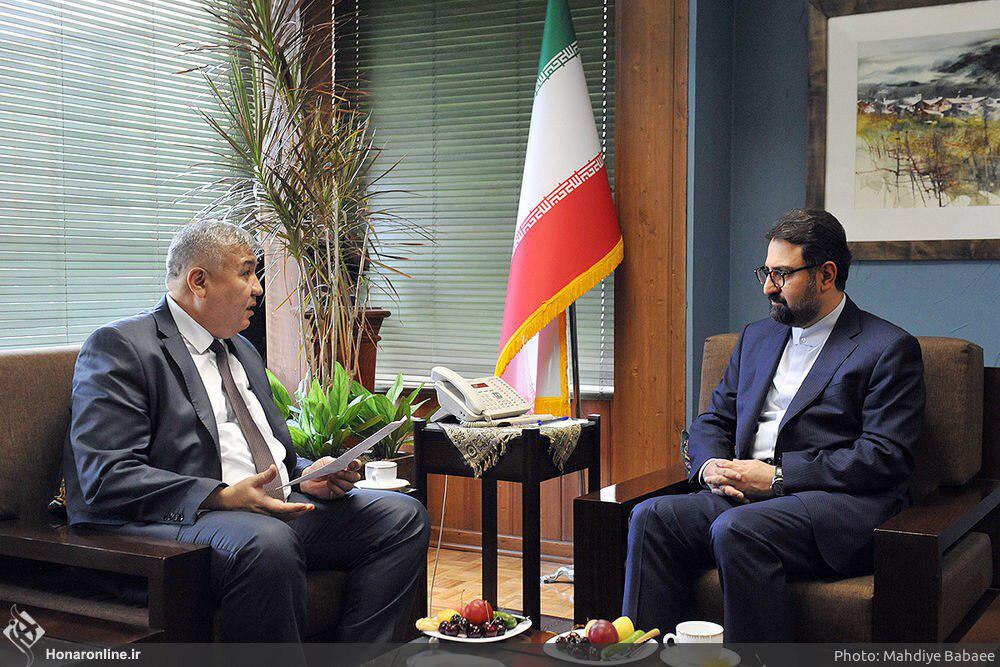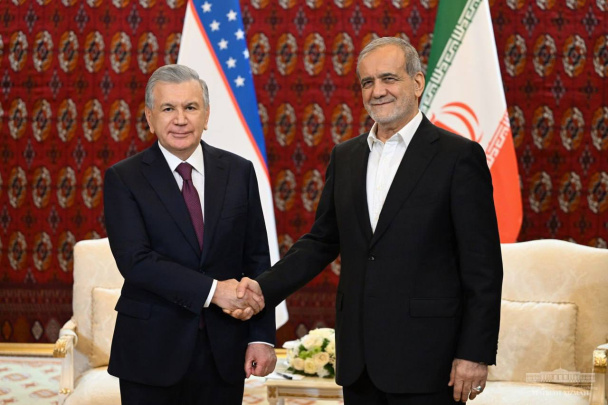Uzbekistan asks Iran for copy of page from rare Quran for museum

Uzbekistan has asked Iran to give the country a copy of a page from the Baysunqur Quran, a rare manuscript folio of the Holy Quran preserved at the National Museum of Iran, for display in a museum.
According to tehrantimes.com, the request was made by the ambassador of Uzbekistan Bakhodir Abdullaev during a meeting with Deputy Culture Minister for Artistic Affairs Seyyed Mojtaba Hosseini in Tehran.
Calligraphy and illumination for this edition of the Quran was commissioned by Baysunqur Mirza (1399-1433), the grandson of Timur (1336-1405), the Turkic ruler of Central Asia.
The ambassador said that he wants an Iranian calligrapher to inscribe a page from the copy of the Quran for future display in a museum of Islamic civilization that Uzbekistan plans to establish.
Hosseini stated that his department would negotiate with the officials at the Cultural Heritage, Tourism and Handicrafts Organization (CHTHO) for the inscription of a page from the folio.
He added that several other rare manuscripts of the Holy Quran are being preserved at other museums and institutions across the country.
The Malek Museum and Library also keeps several pages of the rare manuscript of the Baysunqur Quran.
According to a study published by Columbia University in New York City, the Quran was first seen in modern times by traveler James Baillie Fraser in Quchan during a tour of Khorasan in 1821-2.
The pages had been taken to Quchan from Samarkand at the time of Nadir Shah’s occupation of the city in the 18th century. Part of the Quran had been placed in an imamzadeh in Quchan by a local Kurdish ruler who had participated in the campaign against Samarkand.
This imamzadeh was destroyed by an earthquake in 1895, but before this time, Qajar king Nasser ad-Din Shah had visited it and removed some of the pages to be placed in the library of the Golestan Palace in Tehran.
In 1912 Prince Mohammad Hashem Afshar visited Quchan and retrieved the remaining pages from the ruins, bringing some to Mashhad. Other pages and fragments are in Iranian and foreign collections, either brought from Samarkand at the time of its capture by Nadir Shah, taken from Quchan, or brought back as souvenirs before Nadir Shah looted the city.
Other pages are kept at the Astan Qods Library in Mashhad and the National Museum of Iran. The Reza Abbasi Museum in Tehran and the National Library and Archives of Iran has also fragments of the Quran.
Related News

15:05 / 26.10.2024
Several airlines change flight routes due to Iranian airspace closure

13:19 / 13.10.2024
Weekly highlights: Uzbekistan’s CIS summit initiatives, WTO progress, and air quality challenges

18:51 / 11.10.2024
Presidents of Uzbekistan and Iran discuss strengthening bilateral cooperation

21:28 / 10.10.2024



